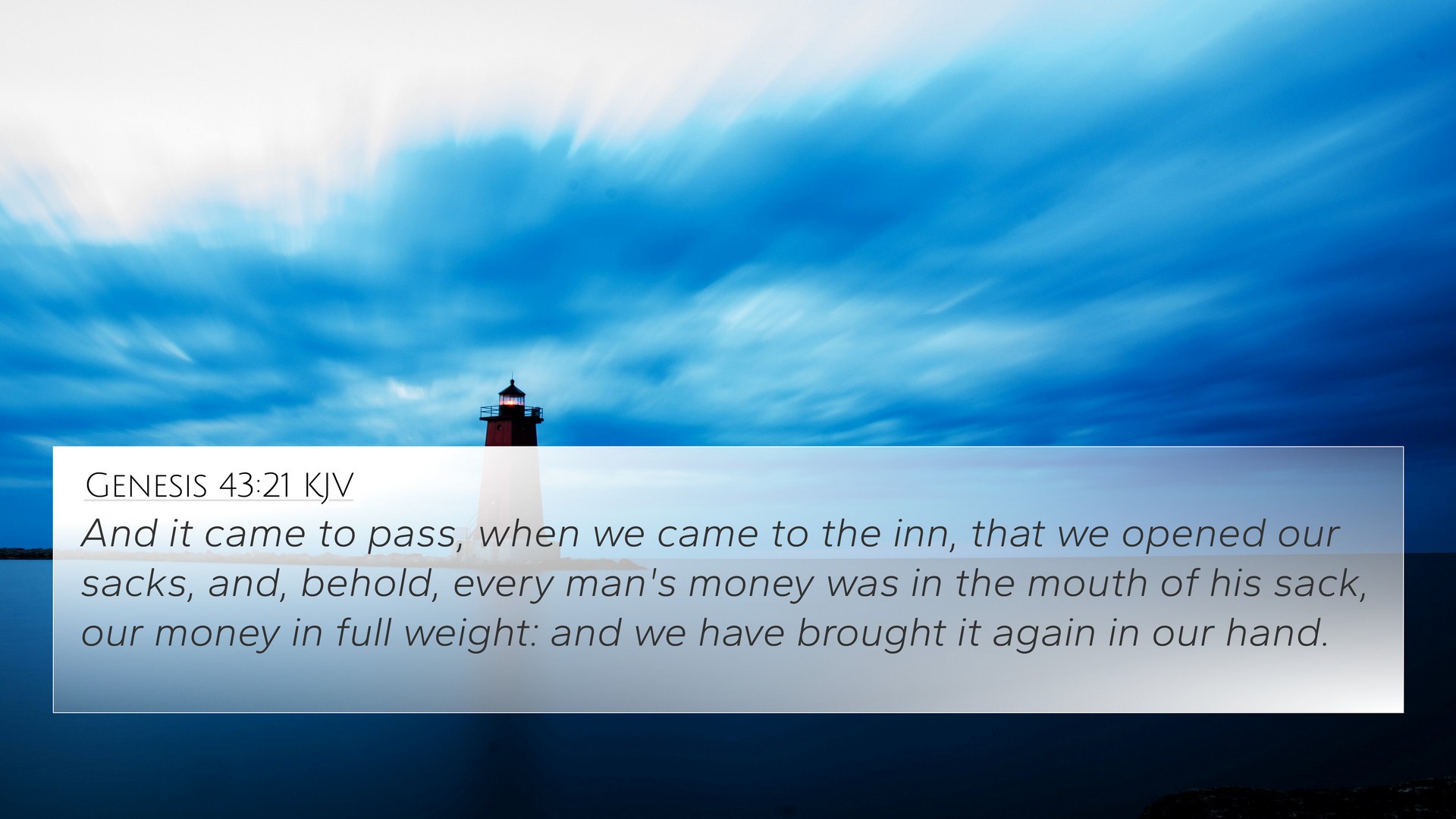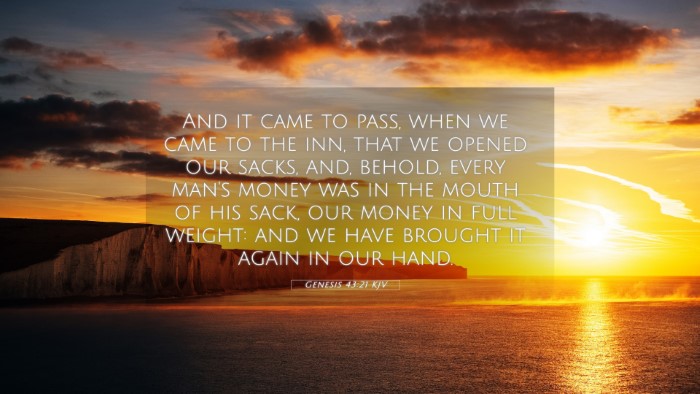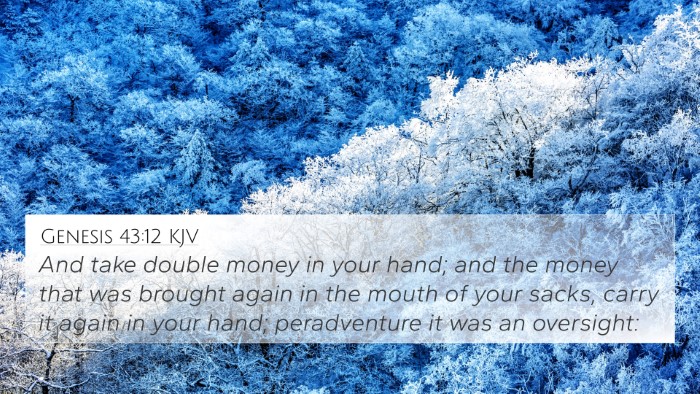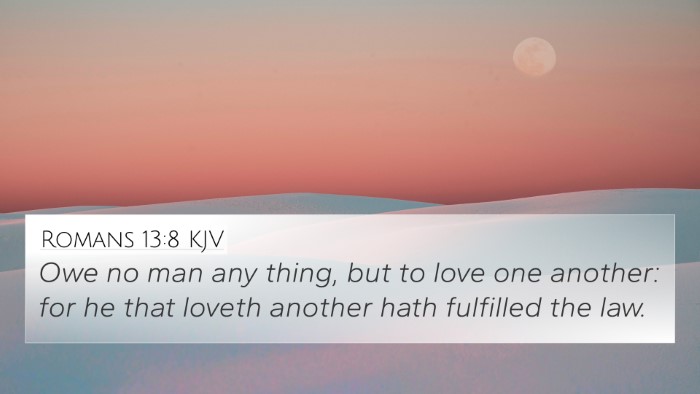Understanding Genesis 43:21
Genesis 43:21 provides a profound glimpse into the themes of reconciliation, repentance, and the divine orchestration of events in the narrative of Joseph and his brothers. It reads:
"And it came to pass, when we came to the inn, that we opened our sacks, and, behold, every man's money was in the mouth of his sack, our money in full weight: and we have brought it again in our hand."
This verse captures a critical moment where the brothers realize the gravity of their situation upon discovering their money returned in their sacks. The implications of this act are significant both personally for the brothers and narratively for the development of the story.
Commentary Insights
Matthew Henry's Commentary
Matthew Henry emphasizes the fear and anxiety that this discovery incited among the brothers. He notes that their immediate reaction reflects a heart burdened with guilt from their past actions towards Joseph. Their fear of being accused of theft and their guilty conscience reveal deep-seated issues of trust and divine justice.
Albert Barnes' Commentary
Albert Barnes elaborates on the fear experienced by the brothers. He discusses the potential for misunderstanding and the consequences of their earlier betrayal of Joseph. The repetition of their money being found in their sacks underscores the theme of divine providence, suggesting that God is at work in their lives, orchestrating events for their ultimate reconciliation with Joseph.
Adam Clarke's Commentary
In Adam Clarke's analysis, he focuses on the practical implications and their emotional responses. Clarke explains how the unexpected return of their money serves as a pivotal moment leading towards eventual reconciliation. He highlights that this act is more than a mere coincidence; it is a mechanism of divine revelation and a catalyst for self-reflection among the brothers.
Thematic Analysis
The collective insights reveal several key themes surrounding Genesis 43:21:
- Divine Providence: The return of their money signifies God's sovereignty and control over circumstances.
- Guilt and Repentance: The brothers' fear reflects unresolved guilt regarding their treatment of Joseph.
- Preparation for Reconciliation: This moment sets the stage for further interactions that will lead to healing of familial wounds.
Cross-References
This verse can be linked to several other scripture passages that enhance understanding through theological and thematic connections:
- Genesis 42:27-28: Where the first discovery of their money occurs, leading to fear among the brothers.
- Genesis 37:28: The earlier betrayal of Joseph by his brothers, establishing the context of guilt.
- Genesis 45:1-3: The eventual revelation of Joseph’s identity to his brothers, culminating the narrative arc of reconciliation.
- Psalm 51:3: A reflection on acknowledging guilt, resonating with the brothers’ feelings.
- Romans 2:14-16: Discusses how people’s consciences bear witness to their moral failings, similar to the guilt felt by the brothers.
- Hebrews 4:13: Reminds us that nothing can be hidden from God's sight, implying their actions are under divine scrutiny.
- Matthew 5:23-24: The importance of reconciliation before offering gifts, echoing the necessity for them to make things right.
Conclusion
Genesis 43:21 encapsulates a moment filled with tension, fear, and the movement towards redemption. The insights from various commentaries help illustrate the significance of this moment in the broader narrative of Joseph and his brothers. The themes of guilt, divine providence, and reconciliation are intricately woven throughout this account, offering a rich tapestry for anyone engaging with the text. The cross-references significantly bolster understanding, highlighting the interconnectedness of biblical narratives and teachings.











